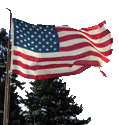|
|||||||||||||||||||||||||
|
What Creates Wealth?Economic Superstitution If you bought a drill bit at a hardware store, you didnít buy it because you wanted a drill bit. No, you bought it because you wanted a hole. Economic superstitution occurs when you think you're conducting business for one reason but actually you're doing it for another reason. One of the greatest dangers that threaten entrepreneurs and businessmen, is economic superstition. We usually think of superstition as something silly, such as a black cat crossing our path. Those are usually harmless. But to believe and act on superstitions that you think are real but are not, those can be downright deadly to your business. Iíll give you an example. Many years ago the worldís leading scientists thought that the earth was the center of the universe, and the sun, moon and stars revolved around the earth. It was an unproven belief that turned out to be wrong. Why is that important? It's important because calendars are based on the current belief of how the earth and sun interact. Calendars are important because farmers need to know when to plant and when to harvest; churches need to know when to hold religious festivals; businesses need to know when to keep appointments. A bad calendar is harmful to your business. So now, let me tell you just a little bit about economics, because ignorance could be dangerous to your livelihood. What Creates Wealth Do you know what creates wealth? Money? No. Money is a token of wealth; it is not wealth. Money is to wealth as a clock is to time. Clocks do not create time; they just measure it. Money does not create wealth; it simply measures wealth. So what creates wealth? Business. Business is what creates wealth. Suppose you made caps and someone else made bread. In your mind and in his mind, a cap is worth a loaf of bread. So you give him a cap and he gives you a loaf of bread. You are both happy, because you both have what you wanted. You both feel enriched by that amount. Youíre not out of a hat, because you make hats, and you do it very well. Everyone in your family wears one of your hats. Heís not out of bread, because he makes bread and he does that very well. Every one in his family is well fed on bread. Now letís suppose the baker meets a third person who sells shoes. The baker wants shoes but the cobbler has all the bread he needs. But he does need a hat, and he needs it very, very much. The baker goes back to you and makes a deal to give you two loaves of bread for three caps. You make the deal because you have a large family to feed, and you make caps very well and very fast. The baker goes back to the hatless person and sells him a hat for shoes. Now the cobbler feels enriched because he has a hat and shoes. The baker feels enriched because he has bread, shoes and hats. You feel enriched because you and your family have hats and are well fed. We could have done all that easier with money, dollar bills, but you see, the dollar bills simply make transactions easier; they do not make the transaction. Dollar bills are not wealth. They are the measurement of wealth. Here is the lesson: People in business create wealth for themselves and others. As long as you are in business providing a product or service that people need or want, you will have an income and create wealth, regardless of what the market out there is doing. In the 1950s it was publicised throughout the United States that the US had 6% of the world's population but controlled 50% of the world's wealth. Today those numbers have changed slightly, but not much. Some people thought that meant the United States got wealthy by taking it away from the poor nations. That could not have been so, because the poor nations didn't have that much money to make us wealthy. The United States controled 50% of the world's wealth because it created 50% of the world's wealth through business. Furthermore, that money began to spread throughout the rest of the world because we set up and financed businesses in Japan, Germany, Italy, and many other countries. They recovered quickly from World War II because we were doing business with them. The lesson is this: Business creates wealth, not money. Money is simply a token, a measurement of wealth.
|
||||||||||||||||||||||||
